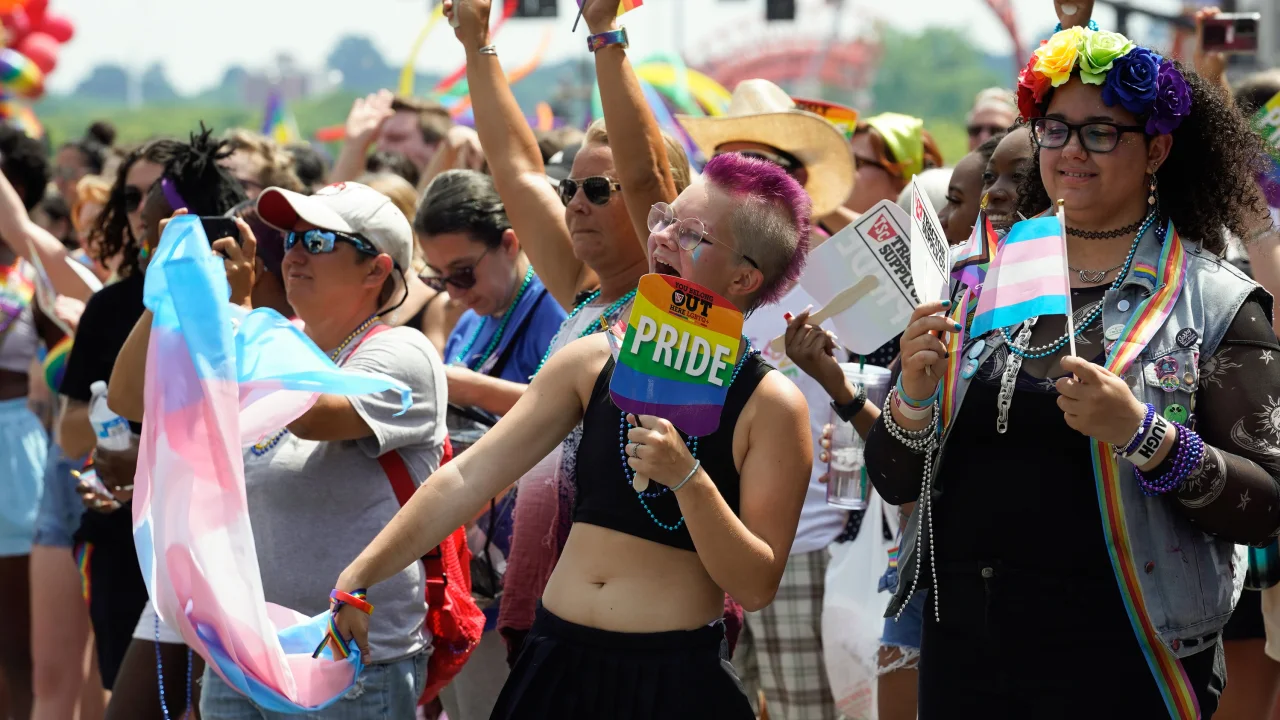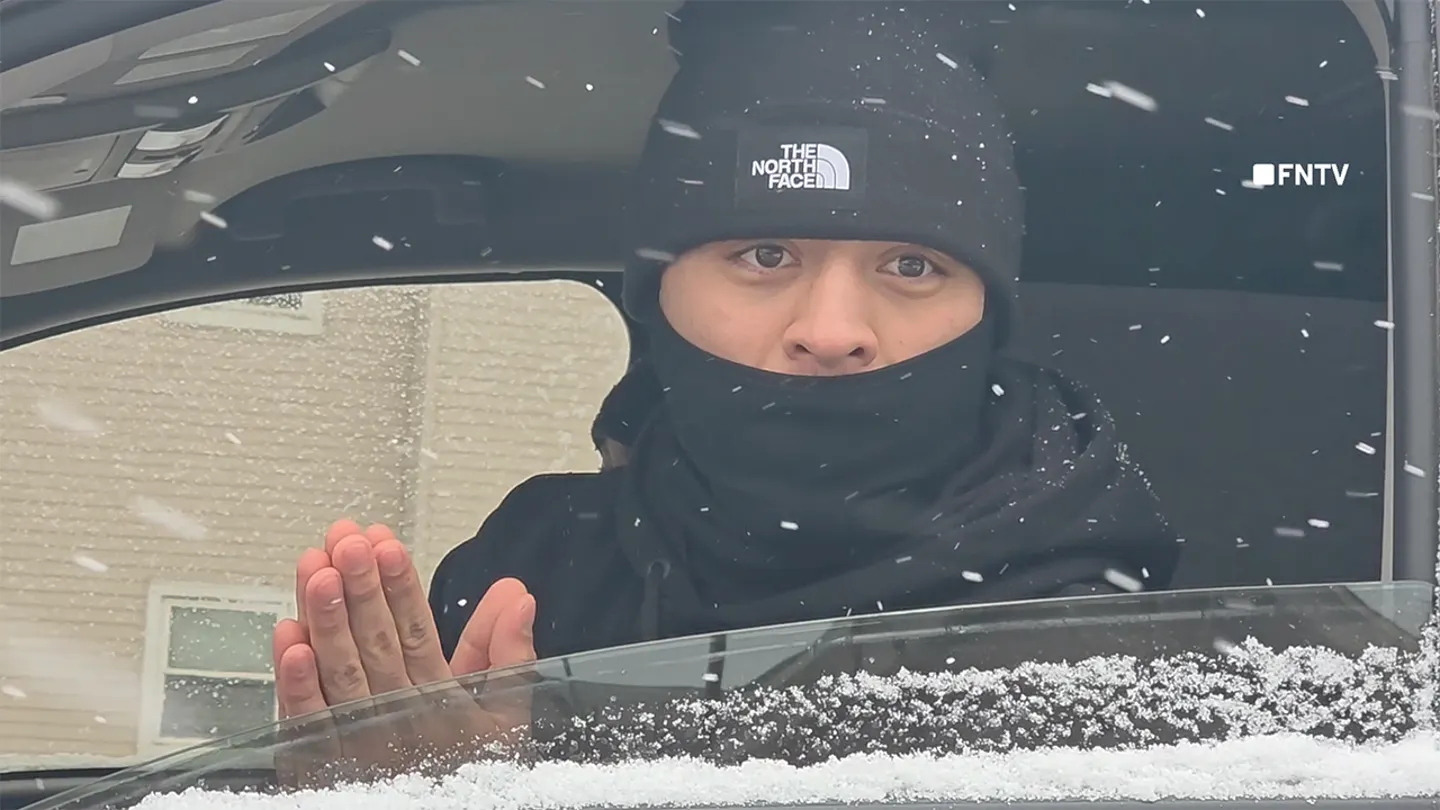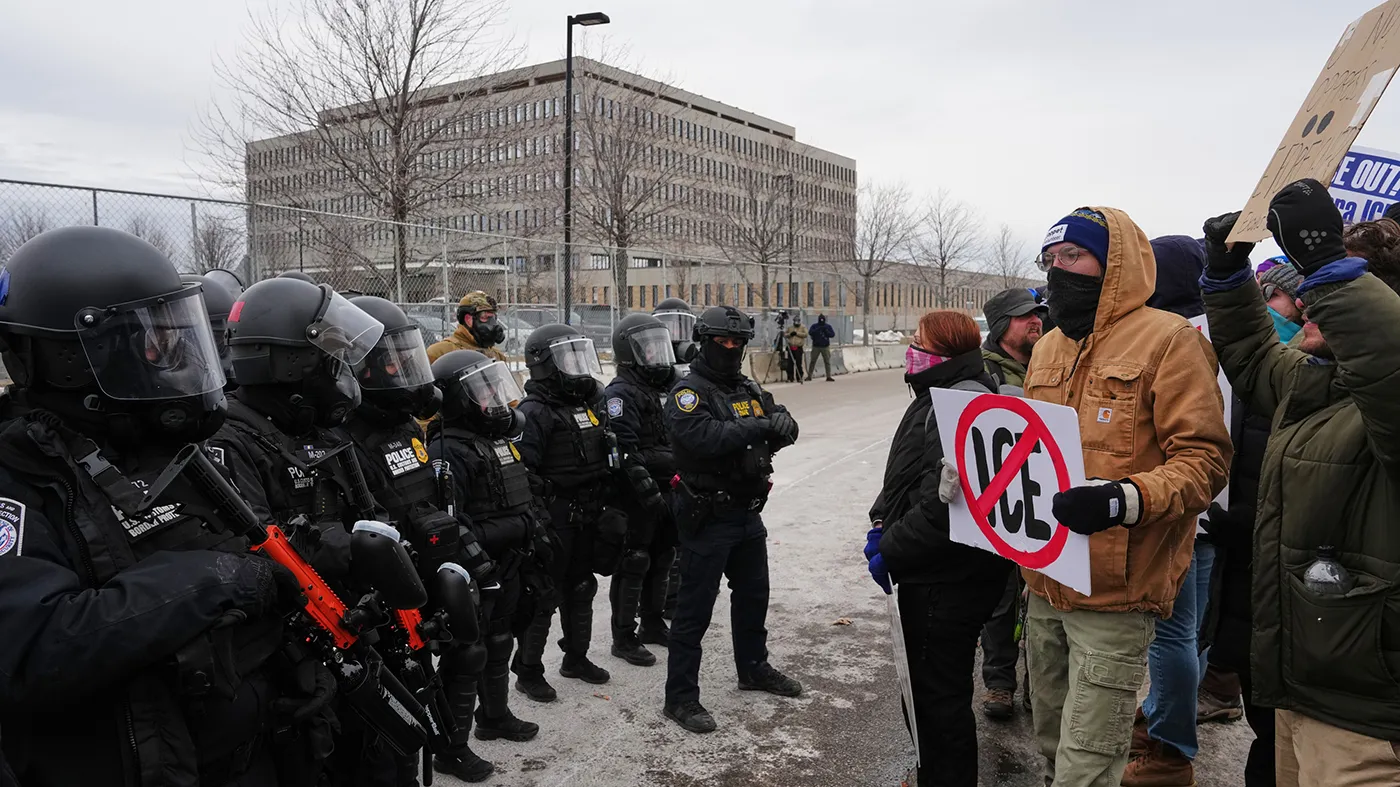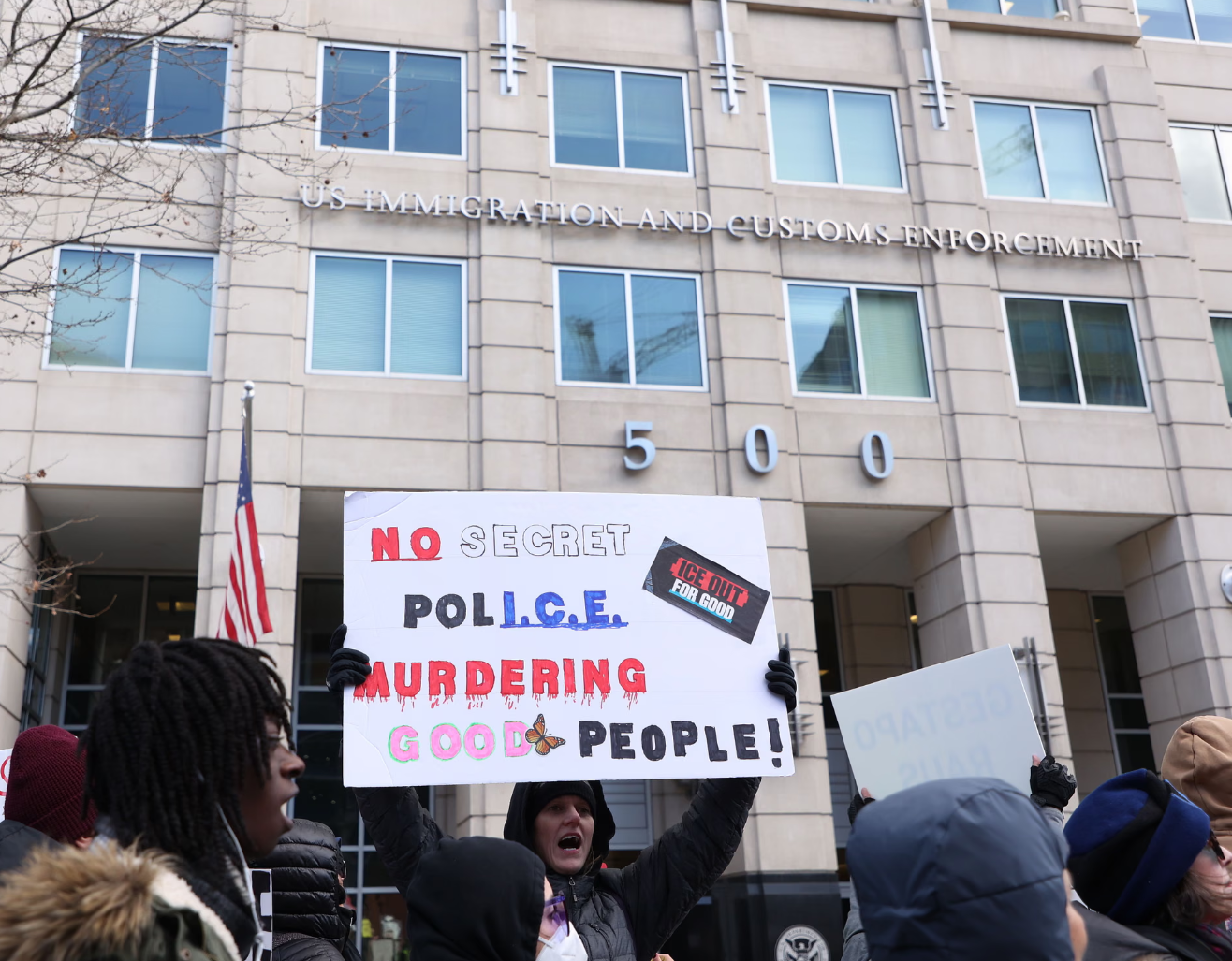In most any other year, Nashville Pride looks and feels like other Pride celebrations in major cities: There are sweaty masses of starry-eyed revelers, drinking in the infectious joy. There are floats and concerts with splashy corporate sponsorships and packed gay bars where famous drag queens and local performers share the stage. And, naturally, the city is plastered in rainbows all weekend long.
This year, though, Nashville Pride may take on new dimensions: of defiant celebration, temporary relief and renewed commitment to protecting the rights of queer and trans Tennesseans.
Nashville Pride 2023 is taking place in the middle of a challenging year for LGBTQ people, in which state legislators throughout the country have introduced a slew of anti-LGBTQ bills. In Tennessee, that includes a law that attempted to restrict where and when drag shows can be performed. (In the beginning of June, a federal judge ruled that state law unconstitutional. The law had already been temporarily blocked from going into effect earlier this year.)
“(Those bills) renewed the fire under all of us to realize that our rights are not guaranteed,” said Joe Brown, one of the owners of popular Nashville gay club Play Dance Bar along with several other LGBTQ-friendly businesses in town. “There’s still fighting to do to make sure we’re equal.”
Ahead of this weekend’s festivities to end Pride Month, LGBTQ residents of Nashville told CNN how this year’s event will feel different from Prides past — and how they’re balancing reluctance and potential protester presence with Pride’s customary joy.
Safety is a main priority at Pride this year
Alexia Noelle Paris is used to lip syncing, leaping into splits and generally leaving audiences slack-jawed with her acrobatic drag performances near-daily: The Nashville queen is a regular at local bars like Play and Tin Roof, and this year, she’s has been a guest on gay country crooner Orville Peck’s North American tour. For years, she’s wowed Nashville Pride audiences and felt comfortable walking around the city in drag after her performances.
This year, she said, she’s worried about her safety. Last week, FBI agents arrested a Kansas man who, according to the US Attorney’s Office of Middle District of Tennessee, had made “online threats to commit acts of violence” at this year’s Nashville event.
“This year, there’s that intimidation,” she said. “It makes you second-guess how you move around here in town … I just plan to be as smart as I can.”
Even though Tennessee’s drag law was overturned, Paris said she’s still feeling ambivalent about celebrating Pride this year, she said.
“We want to celebrate (the unconstitutional ruling), but it doesn’t allow you to forget that there’s still so much that we have to do to really be proud, not only in Nashville but Tennessee.”
Both she and Brown referred to Nashville as a “blue bubble” in a red state, where drag queens can generally feel secure leading a bus full of bachelorettes on a citywide tour or performing in public places during Pride. But the legislative attempts to limit LGBTQ rights, and people who’ve felt emboldened by those bills to protest LGBTQ rights, have given Paris a prolonged taste of intolerance, she said.
“I still want to go and have fun and celebrate, but I also want to be thoughtful with what I’m doing for Pride.”
Pride-goers expect strong political messages
This year has seen conservative lawmakers across the US place a harsh spotlight on LGBTQ rights. Even with the drag bill ruled unconstitutional earlier this month, the relief that decision provided is temporary, Brown said — there are other bills to worry about.
Brown pointed to legislation aimed at transgender youth, including a Tennessee law that enters effect on July 1, which bans some gender-affirming care for minors with gender dysphoria. The US Justice Department filed a complaint in April challenging the legislation, saying the law would deny trans young people “necessary medical care … based solely on who they are.”
Paris predicted that, in response to the political attacks on LGBTQ rights, there will be a “big political presence” at Pride in Nashville this year, with speakers and performers likely directly condemning the surge in anti-LGBTQ bills that have been introduced in Tennessee and other states. And there will likely be anti-LGBTQ protestors at Pride events as a result, she said.
The Nashville Pride website says private security contractors will be onsite to keep festival visitors safe. There are no weapons allowed at official Nashville Pride events, which take place within a fenced area and require bag checks. The Metropolitan Nashville Police Department are not a part of that team — per Nashville Pride, the presence of uniformed officers can make attendees who’ve experienced police brutality feel unsafe.
Brian Rosman, president of the Tennessee Pride Chamber, an advocacy group for LGBTQ-owned businesses in the state, noted that the anti-LGBTQ bills that have passed will have a greater impact on Tennesseans beyond cities like Nashville, Knoxville and Memphis. He said since he moved from Nashville to a rural area, he’s realized that he and his spouse are two of the only LGBTQ people in his new town — discrimination, he said, is also an “education issue.”
That’s one reason why Pride, whether it’s in a large city like Nashville or a smaller town like Murfreesboro, where the Pride Chamber is sponsoring a Pride event this year, is such an important event. Pride events offer a “moment of hope and community,” as well as exposure and education, Rosman said.
How attendees are embracing joy, with some reluctance
This Pride season began with a new sense of urgency. Rosman said the “dark time” that’s clouded much of the last year has been deeply felt, and it’s likely there will be “darker times ahead” in terms of attempts to pass more anti-LGBTQ legislation. But it’s emboldened him, too, to bring Pride to smaller cities, beyond June, to make LGBTQ rights a year-round priority.
Though Paris is impossibly confident onstage, diving off platforms and landing in splits without so much as breaking a nail, she said that offstage, she’s a bit more reluctant to embrace the same freedom that has marked previous Pride celebrations. But she’ll show up to her events, in drag, and give every performance her all anyway.
“When I perform, it’s me really loving dance and the transformation,” she said. “My drag is very full of high energy and passion and artistry.”
Paris said she hopes her drag would never make anyone feel “uncomfortable,” but ultimately, if people take issue with her bold, athletic choreography, that’s beyond her control, and it won’t dim her shine.
“That’s not going to stop me from performing,” she said.
This year’s Nashville Pride celebration is an act of protest




